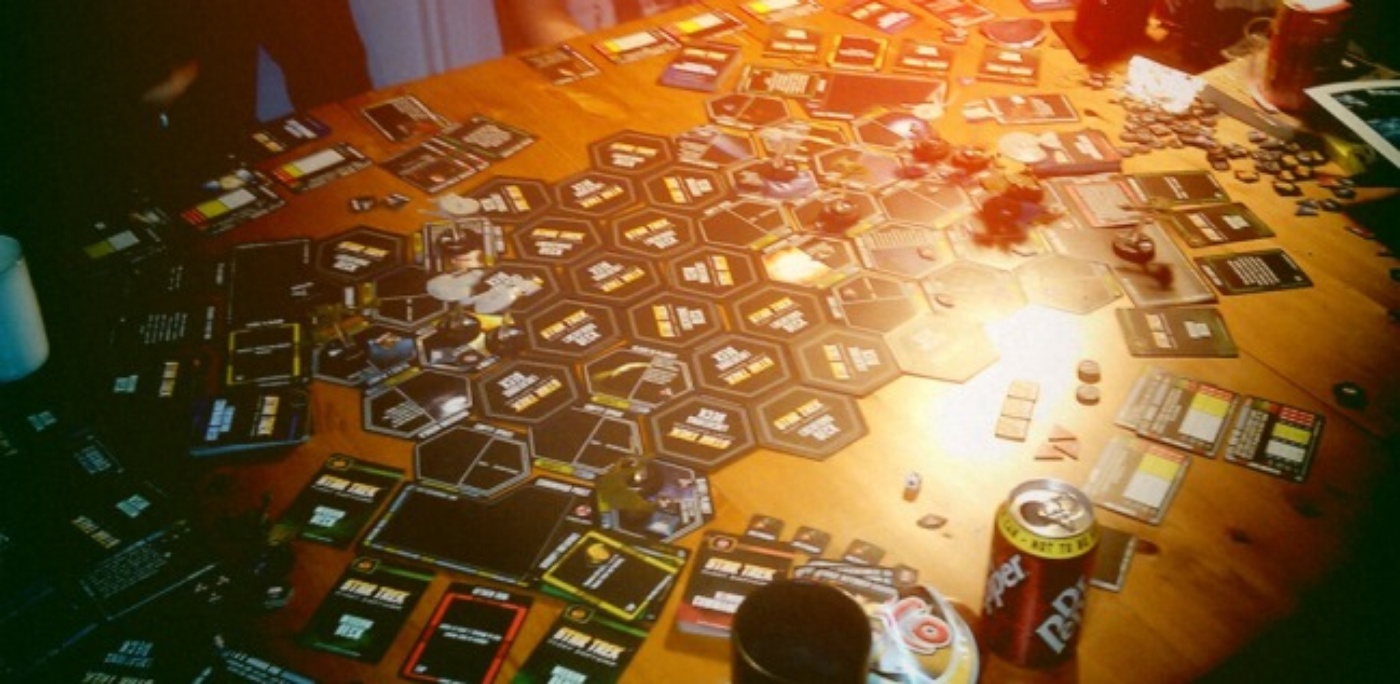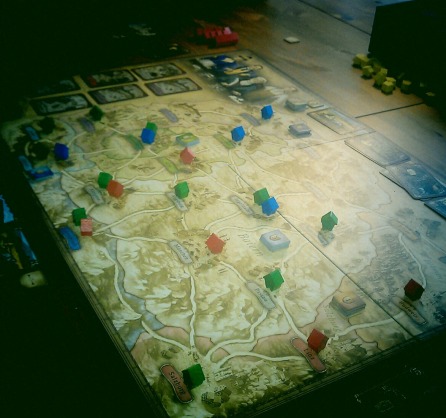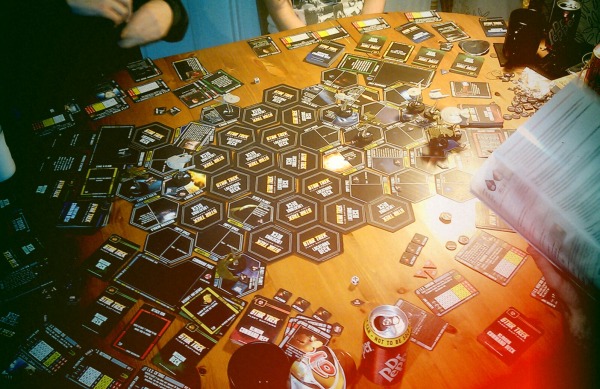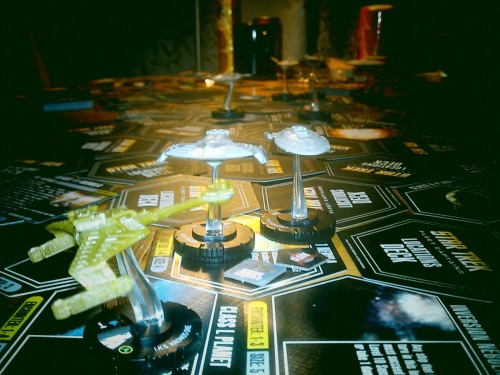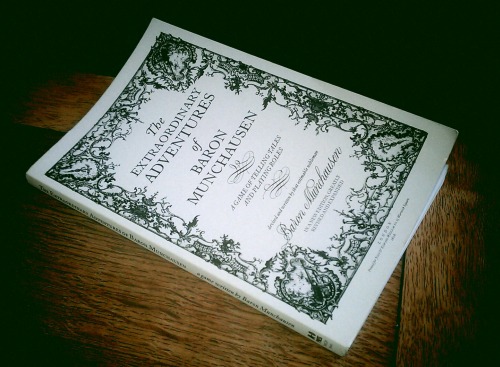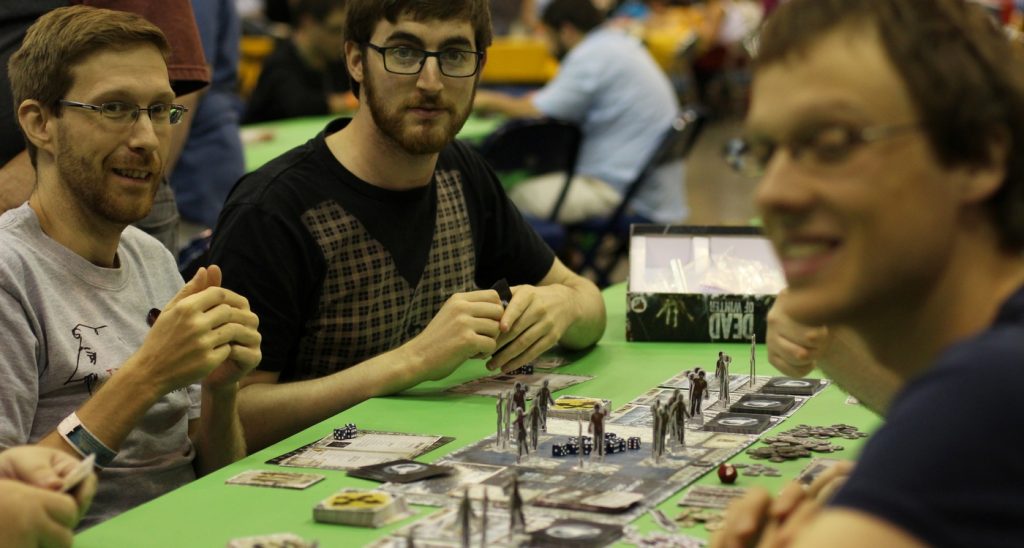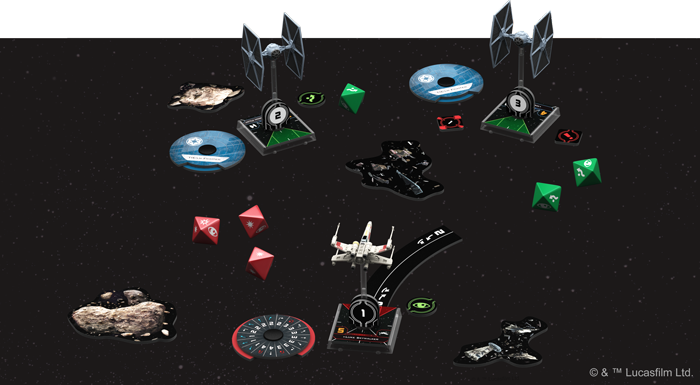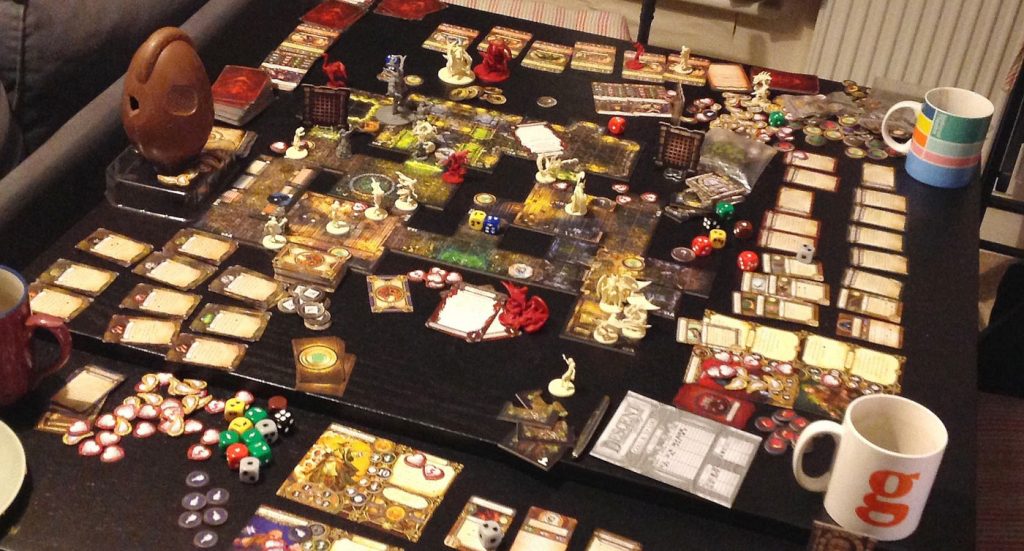We’re trying a new format! Sometimes Paul and I don’t have time to assemble a true, riotous review, but we are always playing new games, our bodies like a pair of unreliable steam engines powered by a smouldering pile of cardstock. So how about this: a quick’n’dirty roundup of the best games we tried last month.
Click on through, then, for some impressions of Star Trek: Fleet Captains, German hit Thurn & Taxis and the talking-tastic Baron Munchhausen. But were we actually impressed? Well!
Apologies for the photography, by the way. Usually we try and get good shots (which is the same process as getting bad shots, but with more swearing), but this time you get miserable phone snaps. Suck it up!
Thurn & Taxis
Thurn & Taxis, or “Thurn & Taxis” as it’s known in Germany, is a well-respected game where everybody runs competing German postal services in the 18th century. Yes. I know. You can run and change your underwear now, if you like.
But come back, because this game is just a big juicy peach for your brain to bite into. It goes like this:
#1: On your turn you take one card from a selection, and play one from your hand as a location on the route you’re building. Town by town, turn by turn, you assemble a great, snaking postal route, which will earn you POINTS if it gets long enough. And actually, this is a snake which could turn around and bite you if you don’t pay attention, because if you can’t play a town onto the beginning or end of your route, it vanishes in a puff of paperwork, earning you nothing. This is agony.
#2: But let’s say you do decide to “close” a route before you inevitably cock it up. What that means is that you can either place one of your tiny post offices in every stop your route makes within a region of one colour, or you can put one post office in every different-coloured region your route passes through. Because there are yet more POINTS on offer for filling regions, but also for having a post office in every region.
The end result is like trying to paint the board your colour with your hands attached to other players’ hands via bungee cords. A wealth of foresight is required, partly because the points for doing anything decrease every time someone does them, but mostly because you only want to paint any town once.
If we return to the peach comparison earlier, my first game of Thurn & Taxis didn’t see me biting the peach as inserting the entire thing into my mouth, then spending the latter half of the game bent double, slapping the table and inhaling noisily through my nose. What had seemed like sensible opening moves had left me with post offices scattered useless across the board and a hand full of disconnected, useless locations, with which I had to try and perform wasteful double-backs just to scrape another point or two into my hand. It was pathetic.
But it was still a lovely and oddly civilised hour’s gaming. At a guess, I’d call Thurn & Taxis a fine purchase, if you’re looking for something very European and very neatly put together. Like a cuckoo clock. I don’t know what I’m talking about anymore. Let’s move on to
Star Trek: Fleet Captains
I went into this game with an agenda. Last year I listened cautiously to the hype storm surrounding Fleet Captains, and only ever closed the shutters on my windows, shook my head and made another cup of tea.
This is because I’m no Trekkie, and I didn’t know how much of the hype was sourced from the game’s theme, its dozens of ship miniatures or the fact that it “felt” like Star Trek. I was worried that if I flipped this game on its back like a turtle and peeked at the mechanics beneath, I’d be disappointed.
Two things, then— actually, one thing. I was right. That’s the important bit. I, Woodhouse P. Quinns, was totally correct. Unlike Battlestar Galactica or Chaos in the Old World, this game doesn’t achieve the twin feats of paying righteous homage to an intellectual property while still being a sharp game judged on its own merits.
But it isn’t trying to. We’ll get to that in a second.
Fleet Captains pits Star Fleet versus the Klingons in either a 2 or 4 player game, with each player/captain swooping their ships left and right to try and amass victory points. You do this with a random selection of ships, which might be good for combat, intel or science, a random deck of missions, and a random galaxy in front of you, in which you’ll have random encounters.
But it’s OK! You’re not totally at the mercy of the game because you also get a deck of action cards that you can use to try and twist your situation in your favour, your hand refilling as fast as you can spend it. Course, everyone’s doing this, and as such the game can become like a bedspread covered in stars that everyone’s tugging at to make it go their way.
About an hour into our game my Klingon team-mate attacked a Starfleet science vessel, only for Starfleet to notch up some victory points by revealing a Secret Mission which was simply “Take damage in combat.” I was horrified. This wasn’t a game. Even if you try and harass your opponent by obstructing the missions that you can see, doing that simply occupies your ships when they’re probably better off carrying out your missions. I was even more surprised to learn that the only penalty for losing a ship is to receive another, bigger ship next turn.
But of course that’s the penalty. Fleet Captains is just about having fun. It’s about beaming Tribbles onto an enemy vessel, or sending a stealthed Klingon attack craft trundling deep into enemy territory, or sending in a large vessel to pull a smaller one out of the vice-like grip of a black hole. It’s about laughing as another player goes trundling unwittingly into a parallel dimension, and settling scores whether they affect the game or not.
In short, Fleet Captains is Ameritrash of such an unrefined grade that I didn’t even recognise it when I saw it. It’s a game about owning 24 wonderful plastic starships, accompanied by a sheaf of rules to let you explore space in a way that will always be surprising and colourful. It’s about wincing as your ship, full of helpful “crew” cards escapes an encounter by luck alone.
And there’s definitely an argument to be made that a faithful Star Trek game would have to work this way, because Star Trek isn’t about one concept. It’s about ideas. Here, every turn feels like a unique, bizarre, standalone episode of the TV series. That’s a success in itself. And, in the words of my friend, those hands of cards are ultimately necessary because Star Trek is, above all, a series about people pulling plot elements from out of nowhere.
And now for something completely different!
The Extraordinary Adventures of Baron Munchausen
Tell you something else about Star Trek: Fleet Captains. The manual is an abomination. Baron Munchausen, on the other hand, has (or, more accurately, is) the best rulebook I’ve ever encountered.
Baron Munchausen is a game of story telling. You’re all Victorian nobles talking of your wild and absurd exploits, and each round begins with one player turning to another and saying, say, “Tell us, Baron [Your friend’s name here]. Is it not true you once escaped from the Irish army riding half a horse?” Or whatever other miserable opener you can dream up.
It’s then up to your poor friend to tell this story, with all the other players chiming in whenever they like to confuse matters. “You fled under a hair of gunfire? But how is that possible, sir? It is well known that you have no stamina for running.” Whereupon the (already sweating) storyteller will either have to factor this into their story, deny it, or produce a counter-challenge.
At this point I should probably mention that the manual heavily encourages drinking throughout (a drink must be downed before a challenge can be raised), making this the first game Shut Up & Sit Down has looked at which is best played in a bar. The first of many, hopefully.
There are a handful of more concrete rules involved in this that see players gaining and losing points, or, if a dispute becomes too heated, “dueling” (which takes the form of three rounds of rock-paper-scissors), but it’s the talking and quick-thinking that matters. I’ve never played anything quite like it, which makes me love it by default, and then you’ve got the manual.
Oh man. It’s 107 pages long because it’s written by the baron himself, who is, of course, a legendary talker. Here’s an excerpt.
“When all is done with their stories, there should be a moment of pause. Sit back in your chair and permit the pot-boy to recharge your glass. Think on the stories you have heard, and decide in your own mind which was the best. If you are of a scholarly bent you may wish to debate the matter with your companions, making reference to Aristotle’s Ars Poetica and the recent critical works of the poet Dryden. Or if not, then not. ‘Tis of small importance.”
107 pages of this. Also a two page appendix at the back containing “The rules in brief”. If that’s not an immediate impulse buy for you, the manual also includes a variant, “Es-Sindibad’s Rules,” which is similar but with an adorable Arabian twist that sees players all demanding a different part of a story be told (and gaining points if the story teller forgets their request), and Allah is thanked for every fortuitous turn in the tale.
It’s just such a wonderful device to help you have fun with your friends, which, personally speaking, is exactly why I’m into board gaming. You can bet I’ll be playing this one in the pub for decades to come.
Right. That’s enough of that. Time to hunt Paul down and put together another family-size, meticulously researched review of something. Something with frightening accuracy but no fear. Something worthy of you, beautiful reader.
And I think I have just the game…

